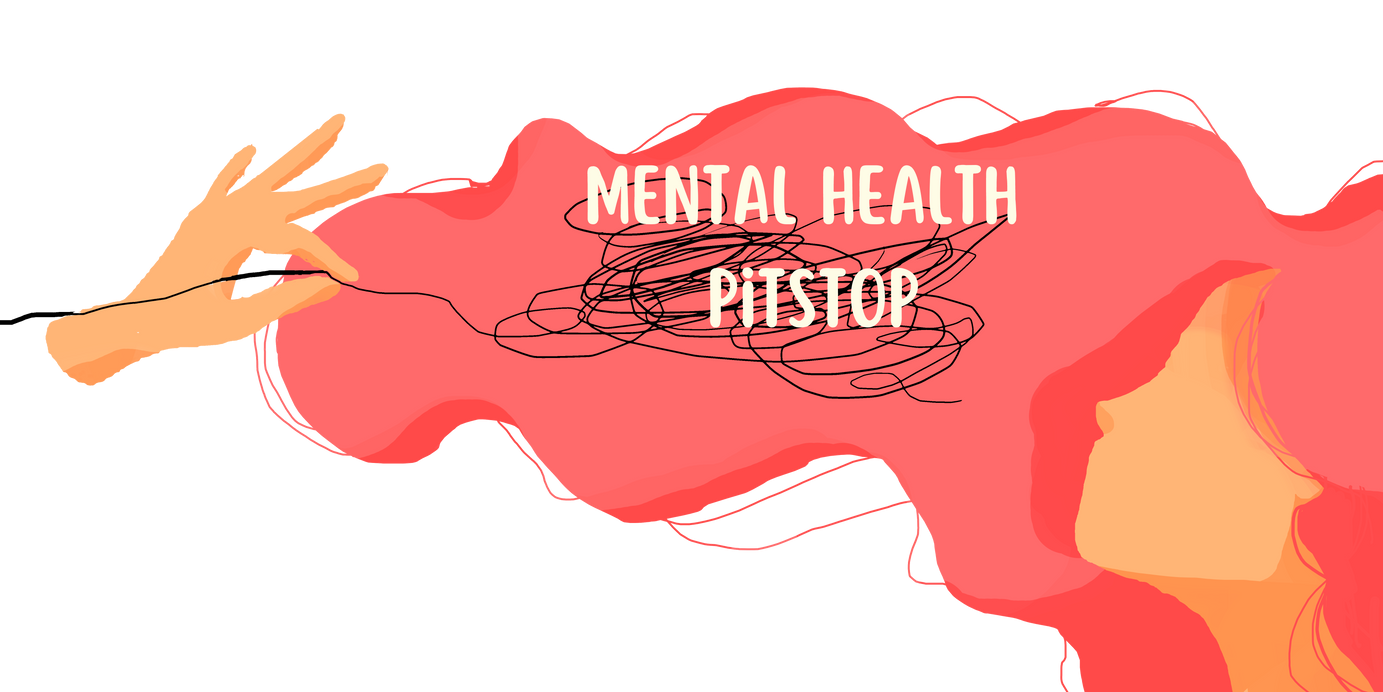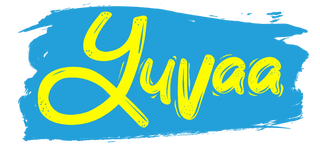Overview
Fastrack Mental Health Pitstop is a comprehensive online platform designed to address the mental health needs of young Indians aged 18-24. The project aims to demystify therapy, offer free counseling sessions, and provide community-driven resources tailored to the Indian context. As the Product Lead, I spearheaded the concept, design, strategy, management, and content creation for this initiative, collaborating closely with cross-functional teams to deliver a user-centered solution. I led a team of 8 members.
Target Audience
- Indian youth
- Aged 18-24
- Primarily college students and young professionals
- Seeking mental health support and information
My Role
Product Lead - Designer, Strategist
Product Manager
Marketing Manager
Content Designer and Strategist
Team
Ami Shah, Yuvaa Content Associate
Sonia Bhatia, Yuvaa Content Associate
Dhira Rambhia, Yuvaa Community Associate
Kasturi Dev Chowdhury, Graphic Designer
Oishii Banik, Graphic Designer
Fastrack Developers (On Rotation)
Platform:
Website
Project Type
Product Design and Development
Duration:
3 months
Design Method
User-centered
Design
Impact
500 therapy sessions were completed within 26 days
Fastrack expanded budget a future long-term projects
Fastrack increased budget to accommodate 300 additional therapy sessions
Media Features

The Challenge
The client approached us with a brief to create a project for young people and offer 500 free therapy sessions. Through collaborative discussions with stakeholders and user research, I identified a more complex set of challenges:
Lack of culturally relevant mental health information for Indian youth
Overwhelming and potentially misleading online mental health resources
Limited accessibility to mental health support
Absence of contextual strategies and resources for the Indian audience
Research and Discovery
Focused Group Discussion
Two sessions with 6 participants each, aged 18-24 years
In-depth User Interviews
8 interviews with college and master's students across India, online and offline
Expert Interviews
Discussions with mental health professionals working with youth
Secondary Research
Focused Group Discussion Two sessions with 6 participants each, aged 18-24 years
Insights
Confusion caused due to self-misdiagnosis
Lack of call to action to improve mental well-being
Lack of resources to healthily communicate with family members/ community.
Information is scattered all over the internet
Difficulty in finding a support group
Lack of social proof for tools and practices on the internet
Design Solution
Based on the research findings and collaborative ideation sessions with the stakeholders, I advocated a three-pronged approach to increase awareness, action and advocacy with Yuvaa’s Leadership team and Fastrack’s team
Awareness
Mental Health Encyclopedia
Mental Health Encyclopedia: A comprehensive, culturally-relevant resource tailored to the Indian context, demystifying mental health concepts and conditions.
Action
Free Therapy Sessions:
Partnership with MindPeers to offer 500 free therapy sessions to users.
Advocacy
Community-Verified Resources
Yuvaa has been the champion of youth mental health, and we would put together verified resources and stories, amplifying the voices of Indian youth.
Feature Priority
High Priority | Medium Priority | Low Priority |
A-Z encyclopedia
| User Feedback and Improvement
| Mobile App Development
|
Educational Content
| Multi-media new content
| Expert Webinars and Live Sessions
|
Therapy Project Integration
| Multilingual Content
| Group Support Session
|
Community
|
Content Areas
Mental Health Basics
| Cultural Context
| Therapy and Benefits
|
Self-care and wellness
| Emotional Intelligence
| Youth Mental Health
|
Digital Well-being
| Personal Growth
| Community and Support Networks
|
Special Topics
| FAQs
|
Card Sorting: To Uncover User’s Mental Models
Information Architecture
In-person
6 participants
20-25 year olds
3 hours
Open Card Sorting: Participants create their own categories and organize content accordingly.
Closed Card Sorting: Participants organize content into pre-defined categories.
Insights for structure
A-Z of Mental Health
- Definitions
- Symptoms
- Treatment options
- Self-help strategies
How to therapy
- Finding a therapist
- Preparing for therapy
- Therapy sessions (what to expect)
- Post-therapy support
FAQs
- Common concerns
- Misconceptions
- Cultural context
- Expert advice
Persona
Motivation
Priya wants to have it all in her life, just like her peers and her brothers. She wants a good career and further pursue her MBA. She has been experiencing mild anxiety and has stressed herself thinking she is a problem. She is motivated to find a solution, but can’t afford therapy. She wants to feel better and is motivated to seek professional help as well as improve understanding of her problem. She just doesn’t know how.
Challenges
- Feels overwhelmed by academic and social pressures
- Struggles to find relatable mental health information
- Worried about the cost and privacy of seeking professional help
- Her friends are mostly male and do not relate to her experiences in college
Priya Sharma, 21 years
Third Year Student, Engineering
Priya, a third-year engineering student at a prestigious university in Mumbai, is the first in her family to pursue higher education. She juggles academic demands, family expectations of getting married after graduating and her own personal development as well as career aspirations.
Needs
- Culturally relevant mental health information
- Accessible and affordable therapy options
- A safe space to share experiences with peers
Behaviors
- Active on social media, particularly Instagram and WhatsApp
- Tends to google symptoms when feeling stressed
- Hesitant to discuss mental health with family or friends
Quote
“Music was my therapy. But its so overwhelming that maybe I should talk to someone"
Goals
- Understand her feelings of anxiety and stress
- Find coping mechanisms that fit her lifestyle
- Access mental health support without stigma
User Journey
Action
Thought
Pain point
Opportunity
Awareness
Notices mental health concerns/ difference in their behaviour
Something doesn't feel right, but I'm not sure what"
Stigma, lack of awareness, lack of support system
Social Media Campaign
Consideration
Searches online for information
There's so much information, I'm overwhelmed
Information overload, mis-self-diagnosis
Provide culturally relevant, easy-to-understand information
Decision
Considers seeking help
I want help, but I'm scared and don't know where to start
High cost of therapy, Unsure about trusted therapy provider
Offer free therapy sessions, demystify therapy process
Action
Uses Fastrack Mental Health Pitstop
This feels relatable and less intimidating
Technical issues, uncertainty about next steps
Seamless user experience, clear guidance
Reflection
Reflects on mental health journey
I feel more informed and supported
Maintaining progress, ongoing support
Community engagement, self-growth and learning
Low fidelity wireframe

Challenge:
The website was supposed to be hosted and integrated into Fastrack’s home page. There were limited opportunities to add interactivity or improve user experience through interactive elements. Consequently, my focus shifted to crafting content that would guide users through a specific flow to ensure an optimal experience. This challenge was identified during the final hand-off for development.
Content Design and Strategy
Byte Size Information
Breaking down complex information into digestible sections
Inclusive Language
Ensuring the content was respectful, non-judgmental, and inclusive of diverse experiences
Visual Aid
Collaborating with graphic designers to create infographics and illustrations that complement the text
Relatability
Incorporating examples and scenarios that resonate with Indian youth
Content Mock-up

Emojis providing visual and affective representation to emotional states
Definition
Actionable self-help
Symptoms verbalized in
quotes to enhance relatability
Family units and collectivist bonds become first line of support for mental health concerns.
User Flow for Free Therapy Sessions
Sees advertisement on Instagram
Copies Coupon code
Explores the website
Receives an email in newsletter
Visits
Mental Health Pitstop
Clicks Free Therapy
Reads T&C
Learns about the initiative from friends
Redirected to Mind Peers Website for sign up with coupon
Searches on Google
Integration of Free Therapy Sessions
Working closely with MindPeers and our engineering team, I managed the integration of their platform into our website. This involved:
- Designing a seamless user flow for booking therapy sessions
- Creating clear instructions and expectations for the free therapy program
- Collaborating with engineers to implement a tracking system for monitoring session uptake and impact
Impact
The website has been taken down by Fastrack at the end of the campaign in June 2022.
- User Engagement: Within the first month of launch, the platform attracted over 30,000 unique visitors, with an average session duration of 8 minutes.
- Therapy Session Uptake: All 500 free therapy sessions were booked within the first four weeks, with a 92% attendance rate.
- Positive Feedback: 89% of surveyed users reported feeling more informed and empowered about their mental health after using the platform.
Reflections and Key Learnings
- Research Focus:
- Prioritizing user-centered research before design is crucial to creating a more cohesive product for users rather than solely following the brand's goals.
- User research also sparked curiosity among potential users, leading to more early adopters within the first week.
- Cultural Customization
- The project emphasized the need to customize mental health resources to fit specific cultural contexts, addressing an underserved requirement in the Indian market.
- Yuvaa successfully supported its community through this initiative, leveraging organic marketing to amplify the youth's voices and enhance user experience seamlessly.
- User-Centered Design Advocacy
- By consistently sharing user research findings and test results, I influenced decision-making to prioritize features that significantly impacted user experience.
- Balancing Limitations and Innovation
- Navigating within the current website structure pushed us to discover creative content and design solutions that added value without requiring extensive technical modifications.




